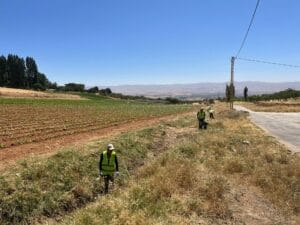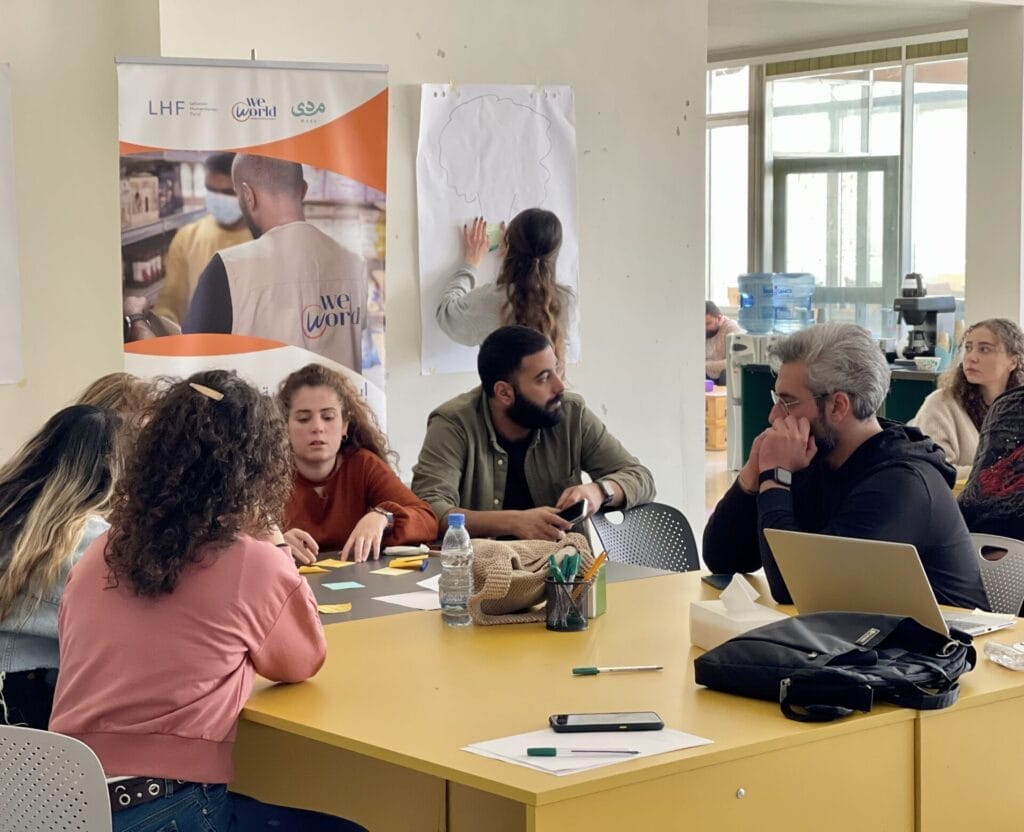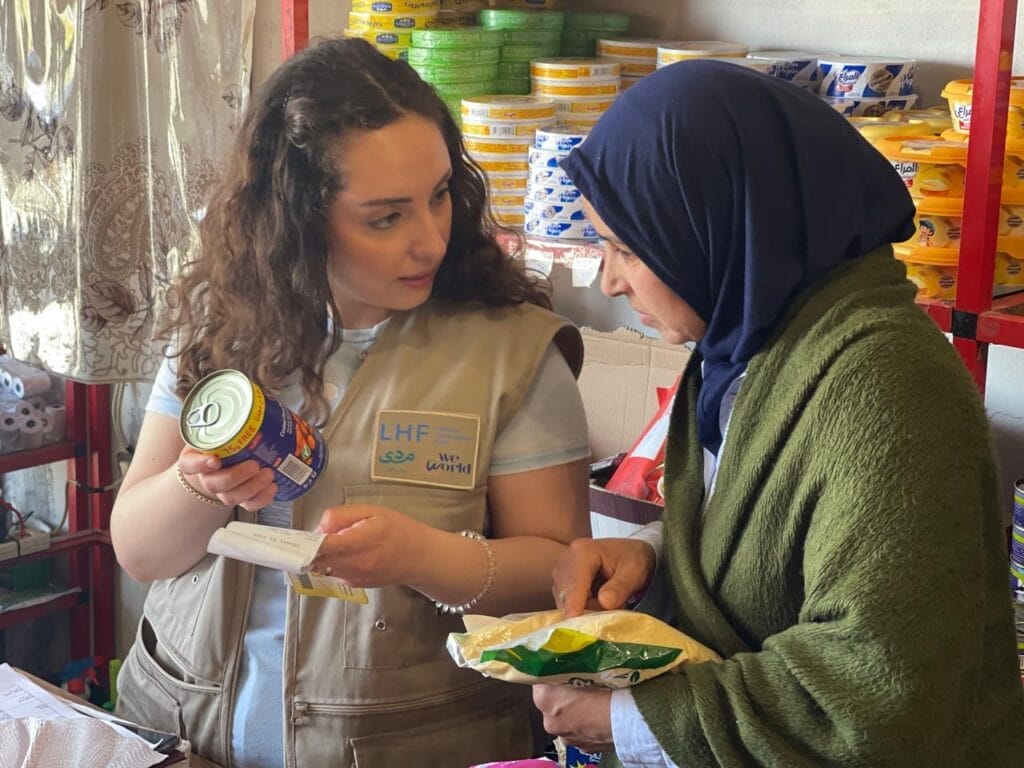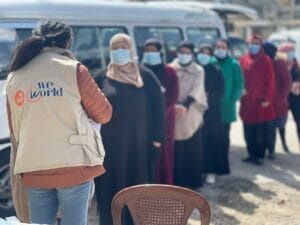
Our intervention
The first phase of our Food Security and WASH project has been completed in Mazarea Jabal Akroum and Machta Hammoud, in the Akkar region of northern Lebanon. The project was funded by the Lebanon Humanitarian Fund (LHF) and we implemented it in partnership with the Mada association as sub-implementing partner.
Over the last six months, 433 households have received dry food and menstrual hygiene vouchers along with in-kind fresh food baskets. The vouchers were redeemed at contracted vendors in the area and the baskets were distributed by an agriculture cooperative. Additionally, the project supported 41 small-scale local farmers by providing agricultural inputs and capacity-building sessions aimed at increasing their production, making it more sustainable and ultimately contributing to their food security.
The Capacity Building Component
At the beginning of the year, together with our partner Mada we launched the third component of the project, setting up a comprehensive capacity building program for national NGOs. This program aimed to enhance the knowledge and capacities of three Organizations in the specific areas of Monitoring, Evaluation, Accountability, and Learning (MEAL) and Accountability to Affected Population (AAP). The component was included to operationalize the Localization strategy prioritized in recent years by the Lebanon Humanitarian Country Team (HCT). The 2023 Emergency Response Plan (ERP) indeed emphasized the need of promoting the participation and leadership of local and national NGOS, identifying them as major actors in providing sustainable and effective aid to the affected population.
The promotion of capacity building activities for humanitarian actors supports continuous learning, enhancing their ability to adapt to evolving challenges and seize funding opportunities. To ensure sustainability and effectiveness, capacity building interventions must be tailored to the specific needs and goals of the targeted organizations and adapted to the humanitarian context.
Building upon similar interventions implemented in recent years, we implemented the capacity building program with Nusaned, Beit el Baraka and the Forum for the Rights of People with Disabilities (FRPD). The implementation of the program followed five main steps, to ensure relevance to, and alignment with, the specific needs of the national NGOs.
First, local stakeholders were strategically identified through the collection of data on their mandates, needs and challenges via dedicated Expressions of Interest (EoI), leading to the final selection of three Organizations. A thorough capacity assessment was then conducted to assess the internal resources and challenges faced by the targeted organizations when implementing MEAL and AAP systems, with the aim of identifying key areas for improvement.
Based on these first two steps, four core theoretical and practical sessions were designed, covering MEAL basics and principles, MEAL tools and techniques, and Data Cleaning, Visualization and Analysis. One last session was dedicated to strengthening AAP systems, including Feedback and Complaint Mechanisms (FCM), Protection from Sexual Exploitation, Abuse, and Harassment (PSEAH), and integrating AAP in Project Cycle Management.
The results of the trainings
The training sessions took place in March 2024 and were followed by two tailored post-training support sessions for each Organization, to ensure effective implementation and retention of the acquired knowledge and skills. Upon completion of the training, a Knowledge, Attitude, and Perception (KAP) Survey was conducted to evaluate the program effectiveness. The survey revealed high satisfaction with the training relevance and practicality, positively valuing the personalized assistance and practical tools provided. Participants emphasized the effectiveness of the knowledge transfer modalities adopted and expressed optimism about the long-term impact of the sessions on their organizational capacity and program effectiveness.
"After the training, we are more eager to use extra MEAL tools in our projects. This is because we are teaming up with International NGOs and UN Agencies that require clear verification methods and tools for transparency throughout our work, from outreach to learning step".

The capacity building component proved to be crucial for localization efforts, as it strengthened the three national NGOs’ MEAL and AAP technical skills and knowledge, enhancing their operational efficiency and their overall ability to respond effectively to humanitarian needs in their areas of intervention.
Changing the world is a team effort!



